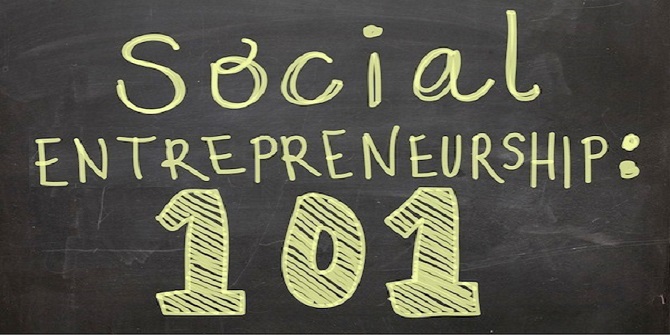Nicole is a Venture Architect / Consultant at Deloitte Digital. She graduated with an MSc in International Political Economy in 2016, but struggled with the London job market. She decamped to Munich, and, after applying for a curious-sounding job at Deloitte, she was hired with great German efficiency. Now, Nicole is a Certified Scrum Product Owner, Design Thinker and strategy consultant who creates concepts, digital products and strategies for major German corporations. In this guest blog Nicole shares her experiences of and insights into the sector.
Digital is one of the most exciting and fast-growing consulting areas. Digital consultancies are engaged in such a variety of projects, such as Corporate Venture Building, Digital Marketing and Data Strategy, that there is high demand for a diverse range of talents not pursued by your standard consulting firm. We have quants and creatives, Excel and Sketch, dress shoes and sneakers – all on one project. It’s ever-changing, multi-disciplinary work with exceptionally cool colleagues.
So, what is it like? Every day is different blah-blah, but really the underlying process is the same. Like in Uni, you begin a project with a set of rough hypotheses. Then, in order to refine your hypotheses, you talk to the client and do research until you’re aligned on what the most important and urgent hypotheses are to (dis)prove. Then you test like hell with the closest approximation to reality available within the time and budget allowed. You take that immense amount of data, structure it, and prioritize your results and recommendations according to urgency/impact and effort. Do the quick wins and most important things first, no matter how much effort, then focus on the nice-to-haves.
So, how do you get into the field? It’s not always clear what these new career paths require from candidates. Obvious advantages are of course post-grad degrees, high marks and a university with a good reputation (check!), but you should also build or emphasize these qualities in your CV and interview to stand out:
- Entrepreneurs and intrapreneurs welcome
Candidates with entrepreneurial experience always stick out. Working for a startup (or founding one) is not only an interesting departure from a major corporation, but it also shows a willingness to follow your convictions, roll up your sleeves and work hard. You can also show these qualities by being an intrapreneur, or someone who takes initiative to innovate within a larger company. Consulting can be hands-off (and famously gruelling), so people who can find intrinsic motivation and follow through on their vision tend to do well. You may even gain a competitive edge by being a subject matter expert in a technique or technology e.g. Blockchain, workshops. A tip to entrepreneurial types: large consultancies can be bureaucratic and frustrating, but getting the right sponsor(s) in your corner to guide and clear roadblocks for you can be immensely helpful.
- Learn to love structured thinking
Clients engage consultancies because they bring one major advantage to problem-solving: structure. Learning to take a complex problem, break it down into its component parts, and devise a step-by-step plan is the foundation of consulting. Yes, there is also expertise and experience at play, but these will come over time. Structure may seem counter-intuitive to innovation, especially to people who see creativity as a free-flowing and spontaneous process. This might be true for the artists/visionaries among us, but in most day-to-day work, creative ideation can be jump-started in three steps: (1) Rapid, unfiltered brainstorming (2) Rigorous editing (feedback from others helps) and (3) Polishing. If you are not naturally inclined to structure (like me), you can practice by sitting down to sketch out the structure of your presentation/paper and read up on the Minto Pyramid Principle. I guarantee this will help you in your studies, work and maybe everyday life.
- Be transparent about what you don’t know but be willing to learn
To some, consultants are synonymous have a bad reputation for stretching the truth. In high-pressure client situations, it can be tempting to say yes or exaggerate your capabilities in order to get a positive result and then figure it out later (until 3am every night), but this can have serious consequences if you can’t deliver, not to mention being unethical. The same goes for your interviews and CV –you don’t want to burn your reputation among people who have a keen ability to sense half-truths. While it is important to project confidence to clients and to your future colleagues, you will likely not know the answer to every question and be intimately familiar with every technology – and that’s ok. If you don’t know, say so; but also say that you will find an answer – and then follow through. In an interview, give examples of new challenges or skills with which you struggled and learned in order to demonstrate this track record. Transparency builds trust and respect – it is better to get the job based on your merits and to work with people who feel the same.




